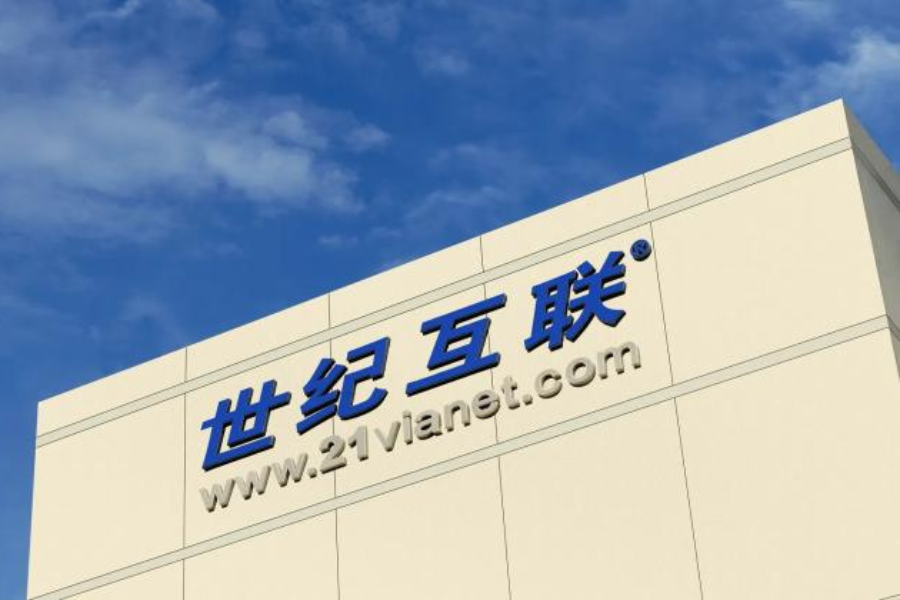Management-Led Group Advances in VNET Bidding War, as Big Names Line Up to Play

A buyout group led by the data center operator’s chairman has found important new backing for its bid from a major government-affiliated fund
Key Takeaways:
- A government-backed fund has lined up to support a management-led bid to privatize data center operator VNET, according to Chinese media reports
- Major western investors looking to make some money from the deal include Blackstone, as well as Bank of America and Vanguard
By Doug Young
A small crowd of major financial hitters appears to be gathering around what could become one of the liveliest M&A stories in China’s private tech realm this year, involving New York-listed data center operator VNET Group Inc. (VNET.US). That story took another twist this week as Chinese media reported a powerful state player is lining up behind a management-led bid by VNET’s founder to take the company private.
We’ll look at this latest development shortly and what it means for the deal. But first we’ll step back to show just how much attention this particular deal has attracted from major investors in both the west and China, and try to explain why.
In fact, VNET is quite the laggard in its sector, where its two major competitors are Chindata (CD.US), which is controlled by U.S. private equity giant Bain, and industry leader GDS (GDS.US; 9698.US). VNET is easily the oldest of that trio, with a history dating back to 1999. But it has also been overtaken by its two younger rivals in recent years.
Despite its laggard status – or perhaps because of it – VNET has managed to attract quite a field of major private equity bidders, even though it was never officially put up for sale. Chinese private equity firm Hina Group is the only one of those to make a formal bid for VNET, offering to buy the company for $8 per American depositary share (ADS).
But others that were reportedly weighing bids this year include South Korea’s MBK Partners, as well as PAG and CDG, which were considering bids as recently as last month, according to Bloomberg. Into that mix, VNET announced its own insider bid led by the company’s founder and Chairman Chen Sheng, who also uses the English name Josh, at $8.20 per ADS.
While the big-hitting private equity firms are considering bids, at least one other big name – Blackstone – is taking part in this contest another way by buying a major stake in VNET. It held 7.3% of VNET’s shares at the end of June, and also has another major potential interest in the company through its purchase earlier this year of $250 million of the company’s five-year notes that can be converted into shares later.
The latest list of VNET’s major shareholders reads like a who’s-who of big investors, including the Krane Funds with 3.3% of the company’s shares, Vanguard with 3.1%, Bank of America with 2%, and Blackrock with 1.5%. None of those are listed in VNET’s most recent annual report that shows top shareholders at the end of February, indicating most of these are probably recent investors.
The motivation for all of these investors appears to be simple greed, since VNET’s shares are currently trading well below both the Hina and management-led buyout prices. The stock jumped 10.3% on Wednesday after the latest report on the important development for the management-led bid. But even at its latest close of $5.03, it is still about 60% below both bids for the company.
That means there’s quite a bit of money to be made for holders of the shares if a buyout occurs at either offer price, and potentially more if any higher bids come in.
State backer
All that said, we’ll look next at the latest reports that say a fund managed by the State Information Center has agreed to back the management-led bid. This fund looks quite well-connected, since the State Information Center is directly affiliated with China’s National Development and Reform Commission (NDRC), the nation’s top economic planner and one of its most powerful economic bodies.
The reports say the State Information Center has set up a 2 billion yuan ($257 million) fund to back the management-led offer, which values VNET at about $1.2 billion. Chen and other top managers collectively hold about 10% of the company’s stock, meaning the management-led group must come up with about $1 billion to buy back the rest of the shares. The latest news shows the State Information Center could supply about a quarter of that.
So, the management team must still find backers to supply another $750 million – no small sum, especially when one considers VNET’s laggard status among its peers.
That laggard status shows up in the company’s price-to-sales (P/S) ratio, which currently stands at just 0.76, compared with Chindata’s turbocharged 4.05 times and a less-impressive but still strong 1.37 for GDS. Anyone wanting to see in more detail why VNET is such a laggard can read our last report on the company when it announced its second-quarter results in August.
While its relatively clear why the investment community wants a piece of this deal, the government’s motivation is slightly different. Beijing sees things like digitization, big data and the high-speed internet as extremely important in the country’s future development. Data centers are an integral part of that equation, since they are host to much of the data and computing and storage power that make these other functions possible.
China historically has made it difficulty to impossible for foreigners to own telecoms infrastructure in the country, though data centers fall slightly outside this area and appear to be open to foreign investment based on Bain’s control of Chindata. Still, it doesn’t take a rocket scientist to see that Beijing would probably prefer to keep control of a company like VNET firmly in local hands, which explains why the State Information Center is backing the management-led bid.
All that said, we’ll close by taking our best guess at how this deal might ultimately play out. The state backing certainly makes the management-led bid look like the frontrunner right now, though it’s quite possible Hina or one of the other private equity firms could place an even higher bid. While its possible that a private equity buyer could ultimately win, we would place heavy odds on the management-led group because it already had insider support, and now has strong state support as well.
To subscribe to Bamboo Works weekly free newsletter, click here






